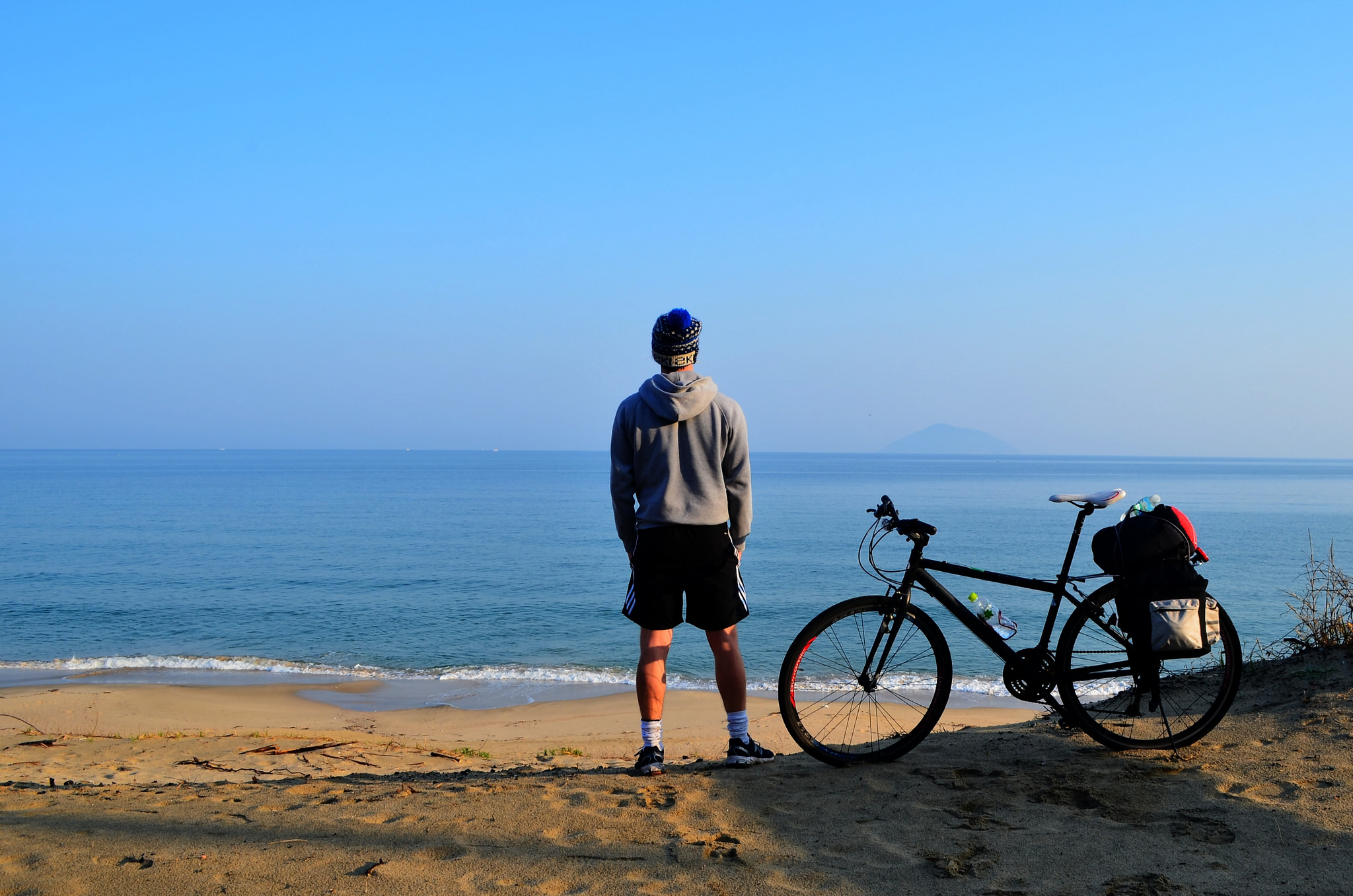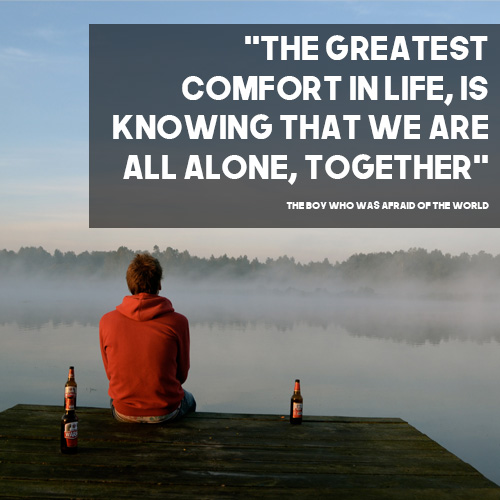 We define ourselves by the way we deal with our problems, not by the problems themselves. No matter how perfect a person’s life may be, you can be sure that they have faced adversity in their life to get to wherever they are. Hitchhiking around Europe for half a year allowed me to gain a unique situation with 227 vehicle drivers – they could tell me anything they wanted about their lives, safe in the knowledge that I would never see them again. So many people opened up to me and what I learnt from this experience is that every single person has their own, large problems in life and – in part because of this – has a fascinating life story to tell. This experience helped me to understand that our path through life is a combination of perseverance (hard work), good decision making, and luck. Working hard is not enough if you don’t work in an intelligent way and sometimes even that isn’t enough because you get unlucky. But good luck can never happen to someone who doesn’t persevere as they won’t be putting themselves in the situation for good luck to happen to them.
We define ourselves by the way we deal with our problems, not by the problems themselves. No matter how perfect a person’s life may be, you can be sure that they have faced adversity in their life to get to wherever they are. Hitchhiking around Europe for half a year allowed me to gain a unique situation with 227 vehicle drivers – they could tell me anything they wanted about their lives, safe in the knowledge that I would never see them again. So many people opened up to me and what I learnt from this experience is that every single person has their own, large problems in life and – in part because of this – has a fascinating life story to tell. This experience helped me to understand that our path through life is a combination of perseverance (hard work), good decision making, and luck. Working hard is not enough if you don’t work in an intelligent way and sometimes even that isn’t enough because you get unlucky. But good luck can never happen to someone who doesn’t persevere as they won’t be putting themselves in the situation for good luck to happen to them.
The three most common forms of adversity (that people cited as limiting them) that I encountered were always fears, money concerns, and expectations, so please feel free to jump ahead to those sections if they are most appropriate to you.
Whilst ‘adversity’ is an all encompassing term that covers many of our problems – including internal struggles which can be the most challenging of all – this page addresses ways I cope with certain forms of adversity. Some of them are simple, such as ‘not having enough money’, whilst others, like coping with fear, are much more complicated.
COPING WITH DIFFERENT FORMS OF ADVERSITY
Each of the following headings is clickable and will take you to the relevant section, and many of them link to other pages across this site. As everyone is different, the ways of coping with these complications will differ between individuals, but this is what works for me. Each section is tailored to coping with adversity to a level that permits you to do what you desire in life. For my life that has involved extended trips around the world for several years, thus many of my adversities are tailored to this topic. Where appropriate, I have incorporated stories of others.
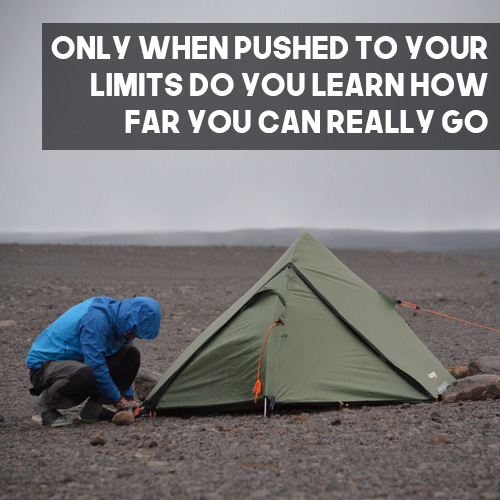 FEAR: COPING WITH FEAR AND ANXIETY IN THIS BIG, SCARY WORLD
FEAR: COPING WITH FEAR AND ANXIETY IN THIS BIG, SCARY WORLD- MONEY: HOW DO YOU AFFORD TO FOLLOW YOUR DREAMS?
- EXPECTATION: THE WAY YOU ARE SUPPOSED TO LIVE YOUR LIFE
- EXPERIENCE: NOT HAVING THE SKILLS TO DO WHAT YOU WANT
- PASSPORTS AND VISA: LIVING IN A WORLD WITH INVISIBLE BORDERS
- FRIENDS AND FAMILY: RESPONSIBILITIES / STAYING CLOSE TO PEOPLE YOU LOVE
- LONELINESS: THE FEAR OF BEING ALONE
- SECURITY: NOT WANTING TO ABANDON SOCIETY
- JOBS: HAVING A GREAT JOB YOU DON’T WANT TO LEAVE
- TIME: PUTTING THINGS OFF UNTIL LATER
- POSSESSIONS: THE DIFFICULTY OF OWNING THINGS
- OTHER FORMS OF ADVERSITY
- WHAT NEXT?
What you are going to see here with many of these issues is a repeating pattern concerning priorities. You have to ask yourself, over and over again, what is most important to you and the way that you want to live your life. And then you have to decided whether to go for something new, keep hold of what you have, or try to make a happy combination of the two.
FEAR: COPING WITH FEAR AND ANXIETY
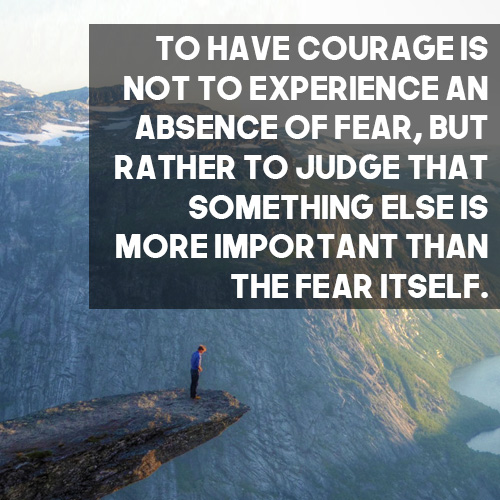 Telling someone to stop worrying is stupid. It’s like telling someone that they should understand the laws and implications of quantum mechanics, right now. Similarly to learning quantum mechanics, coping with fear and anxiety is a process that you must strive to improve over time, but most probably will never fully master. I’m going to address fear here mostly, but I include the term anxiety as well because to me, anxiety means a continuing and unexplained experiencing of fear that causes an ongoing sense of discomfort. You know when you dream that you’re falling and there is that horrible rush before you hit the ground? Well, imagine you don’t stop falling and you keep feeling that rush of fear, but you don’t know when it will end or what is causing it – that is how anxiety feels to me (although everyone is different).
Telling someone to stop worrying is stupid. It’s like telling someone that they should understand the laws and implications of quantum mechanics, right now. Similarly to learning quantum mechanics, coping with fear and anxiety is a process that you must strive to improve over time, but most probably will never fully master. I’m going to address fear here mostly, but I include the term anxiety as well because to me, anxiety means a continuing and unexplained experiencing of fear that causes an ongoing sense of discomfort. You know when you dream that you’re falling and there is that horrible rush before you hit the ground? Well, imagine you don’t stop falling and you keep feeling that rush of fear, but you don’t know when it will end or what is causing it – that is how anxiety feels to me (although everyone is different).
As you may have noticed from the title of this blog, fear is a major theme and I have a lot to say on the topic which I won’t cram in here – you can visit the Coping With Fear and Anxiety page to read extended information on this topic. The name of the site, Great Big Scary World, is somewhat satirical as the ultimate aim is to find a great, big, wonderful world full of opportunity, rather than being limited by fear.
WHAT IS FEAR?
Fear is a finely tuned, self-defence mechanism that has evolved to keep us safe and protect us from danger. Fear should not be eradicated because without it we would be incapable of looking after ourselves – a fascinating case study of a woman who feels no fear emerged recently and it was quite scary (how ironic) how vulnerable the woman was because of her inability to feel fear.
There are two types of fear:
GOOD FEAR
Good fear is the kind of fear that makes the hairs on your neck prick up as you sense an imminent threat to your being, causing you to take survival action. We call it good fear because it is good and we want it in our lives. Good fear stops you from stroking grizzly bears because their teeth are sharp, their jaws are strong, and even if you could outrun them (which you can’t), they can climb trees better than you.
BAD FEAR
Bad fear is sneaky because it feels just the same as good fear, so we stop doing what we are doing, but rather than keeping us safe, it prevents us from making changes in our lives that would be beneficial. We call it bad fear because it limits us and makes us unhappy. Bad fear stops you leaving a job you hate or a lover you don’t love because you don’t know what you will find on the other side.
Thus the aim here is not to eradicate fear, but rather to manage fear and learn to tell the difference between good fear and bad fear. It is understandable that bad fear appears when we consider big life changes: Change involves the unknown and we are afraid of what we do not know (death, the dark, viruses we can’t see, etc). We must choose to listen to good fear and act accordingly, but be brave when facing bad fear.
WHAT IS BRAVERY?
Bravery is not an absence of fear – rather it is having the courage to cope with the fear by deciding that something else is more important than the fear itself. I have always been a fearful individual, but a few years ago I decided to start hitchhiking around Europe by myself, living in a tent and on the couches of strangers. I chose to do this because the positive outcome (thousands of wonderful interactions with strangers, innumerable experiences that will stay with me for my life, and the ability to travel without money) outweighed the risk of something negative that might happen. Yes, things could have gone wrong, but the chances were minimal, thus I hit the road powered by a thumb.
I can’t condense a 120,000 word book into a single sentence, but in The Boy Who Was Afraid of the World (which could be a useful read if you suffer from fears like me), I rationalise that one must cope with fear – rather than trying to defeat it – in the following way:
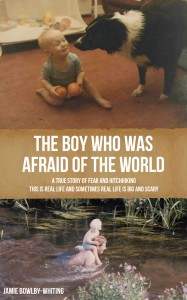 “Fear is a little pink ghost that has the ability to change into any form more terrifying than your worst nightmares could even dream up. He can cripple you, taking everything. When he is around, you are falling constantly, a bottomless journey of no end. You have three choices of how you can deal with this little pink ghost. Firstly, you can run and you can hide. He will always be chasing you, he will always be looking for you. One day he will find you. Secondly, you can punch him in the face. Fear roars at you, you roar right back. It is a simple matter of who roars loudest. And lastly, you can embrace him and you can hold his hand. You walk with fear and you accept him for the little pink ghost that he is, always knowing that he is there, but keeping him in your sight.”
“Fear is a little pink ghost that has the ability to change into any form more terrifying than your worst nightmares could even dream up. He can cripple you, taking everything. When he is around, you are falling constantly, a bottomless journey of no end. You have three choices of how you can deal with this little pink ghost. Firstly, you can run and you can hide. He will always be chasing you, he will always be looking for you. One day he will find you. Secondly, you can punch him in the face. Fear roars at you, you roar right back. It is a simple matter of who roars loudest. And lastly, you can embrace him and you can hold his hand. You walk with fear and you accept him for the little pink ghost that he is, always knowing that he is there, but keeping him in your sight.”
The topic of coping with fear and anxiety is huge, and to read more on it, please head to my page about coping with fear and anxiety. I haven’t addressed anxiety much on this page, but I delve deeper into it on the other page.
In the meantime, do not let fear define you: There is a great, big, wonderful world for you to see.
MONEY: HOW DO YOU AFFORD TO FOLLOW YOUR DREAMS?
 Money is probably the most cited source of adversity in the whole world and people feel completely unable do much in this world because of money, or a lack of it. When it comes down to it, financial stability is a very simple process of balancing input with output, leaving you with two simple options:
Money is probably the most cited source of adversity in the whole world and people feel completely unable do much in this world because of money, or a lack of it. When it comes down to it, financial stability is a very simple process of balancing input with output, leaving you with two simple options:
Most commonly, people find a happy combination of the two. What I’m going to assume on this page is that you no longer wish to continue the job that you currently have (if you have one) and you are looking for a viable option to fund a new lifestyle choice. Maintaining your financial input is a complex and diverse topic that I will address shortly, but the other option – to decrease your financial output – is much simpler. In relation to travel and adventure, it is entirely possible to travel the world without money or to have an adventure without money: I have met people who have done this for many years (such as this guy, Tomi) and I have learnt to survive on a tiny budget.
DECREASING YOUR FINANCIAL OUTPUTS
WHAT YOU NEED TO SURVIVE TRAVELLING THE WORLD WITHOUT MONEY
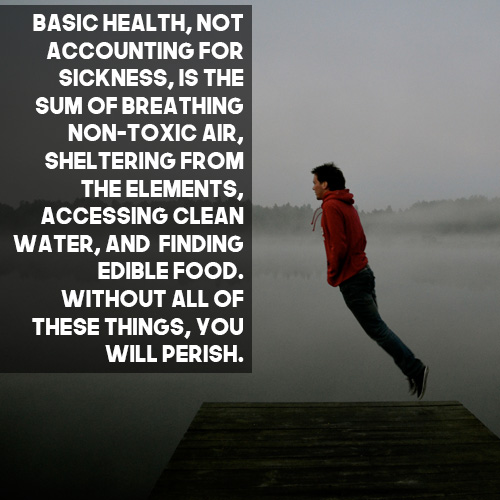 There are only five things that you need to survive when travelling the world without money and here is a brief look at how you can obtain them for free. I will also address extremely low cost ways of obtaining what you need because the objective here is to decrease your output, rather than having a zero output. Travelling completely without money is quite a purist topic and I choose not to travel entirely without money, which I will explain below – instead I often travel with a small budget (whatever I have at the time) which I feel is more suitable to my desires and safer. These issues are greatly expanded upon in my page, Travel Without Money and I suggest you read it if the topic is of interest to you. Your five survival needs are:
There are only five things that you need to survive when travelling the world without money and here is a brief look at how you can obtain them for free. I will also address extremely low cost ways of obtaining what you need because the objective here is to decrease your output, rather than having a zero output. Travelling completely without money is quite a purist topic and I choose not to travel entirely without money, which I will explain below – instead I often travel with a small budget (whatever I have at the time) which I feel is more suitable to my desires and safer. These issues are greatly expanded upon in my page, Travel Without Money and I suggest you read it if the topic is of interest to you. Your five survival needs are:
- Air: Air is free. No matter where you go or who you’re with, don’t let people charge you for it. Exceptions to this would be underwater or in space. If you find yourself in either of these locations, pay anything for air. Air is life and life is great. Without it, you’d be dead.
- Water: Dirty water can make you VERY SICK, so be careful, but in many countries tap water is quite safe to drink. I often knock on a house door or ask in a shop / pub / restaurant for my water bottle to be filled and nobody has ever said no. In other situations (when it is safe to do so, such as when I walked across Iceland), I have drunk from streams. In order to make potentially unsafe water safe for consumption, for a tiny cost you can obtain water purification tablets or liquid which will kill all the nasties in your water bottle and make it safe to drink. Alternatively, you can boil water (vigorously for at least a minute below 2,000 metres) to kill the nasties.
- Food: We are a very wasteful species and every day supermarkets and restaurants throw out food that could feed huge numbers of people. Some countries are making the disposal of good food illegal, but I have found that across Europe I can always find enough food by going to supermarket bins – the term is dumpster diving or skipping. I have met long term travellers who ask food establishment staff or customers for food that is being thrown away, and I have been told that most people are happy to help out if you explain about the whole ultra-low budget travel experience – I have never tried this as I get too awkward, but the term is table diving. Another way to obtain free food is to forage in the wild. I have never taken produce from any farmer’s field (as that would be stealing), but I like to take wild fruits when I find them – plums and cherries are particularly plentiful in summer. And if you have a small budget, it is possible to eat extremely low cost food by thinking about what you buy. Bags of oats and pastas, coupled with wild or market bought fruits and vegetable (for nutrition) won’t set you back more than a couple of pounds a day if you plan where to buy from.
- Shelter / Sleep: Since finishing my studies, I have found over four years of (non-continuous) free accommodation around the world. It was never my intention, but spending nothing on accommodation really helps to limit your output. My favourite ways of finding free accommodation are by free camping, volunteering, visiting friends and family, Couch Surfing, or working in exchange for accommodation. House sitting or pet sitting assignments are also great options to find a free bed, but I am yet to try this myself. As this topic is quite large, I suggest reading my How to Find Free Accommodation Around the World article.
- Health: If you don’t have your health, you have nothing. Health is a combination of shelter, nutrition, water, and so many other things that are already mentioned here, and it is something I would not gamble with. This, more than any reason, is why I would not travel completely without money: I think everyone should always travel with travel insurance and not doing so is irresponsible and may ruin all your plans. Several years ago I broke my back in France and the medical bills were upwards of €5,000. As I had travel insurance, I only had to pay an excess of around £65. Without travel insurance my life would have been made significantly worse as I would have had to work to pay back the money or not receive treatment. I highly recommend reading more on travel insurance and purchasing a policy before you head overseas – this page has advice on which policy you should get. In addition to travel insurance, I also advocate getting necessary vaccinations which is another cost.
WHAT YOU NEED TO ENJOY TRAVELLING THE WORLD WITHOUT MONEY
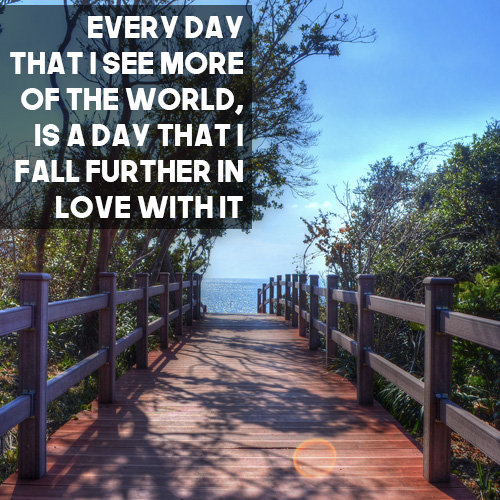 This list is not definite or all encompassing, but it is what I think we need to enjoy ourselves when on the road. Once again, read the full Travel Without Money article to get a full explanation of this part of the post – I will only touch very lightly on each issue here. Many of the the following suggestions are achievable by slowing down your journey – if you aren’t on a one week holiday, trying to squeeze in all the major tourist spots, you can find ways to avoid spending money.
This list is not definite or all encompassing, but it is what I think we need to enjoy ourselves when on the road. Once again, read the full Travel Without Money article to get a full explanation of this part of the post – I will only touch very lightly on each issue here. Many of the the following suggestions are achievable by slowing down your journey – if you aren’t on a one week holiday, trying to squeeze in all the major tourist spots, you can find ways to avoid spending money.
- To See Remarkable Things: You don’t have to pay to see all the major tourist spots. There are many free things in every part of the world, both natural and human made. Try appreciating things that most tourists would never take the time to appreciate.
- To Meet Beautiful People: People are everywhere and it is often the people that define your experience of a place. I interact with strangers by using hitchhiking, Couch Surfing, or chance encounters as an opening.
- To Experience the World: It’s pretty cool if you give it a chance. And most of it doesn’t need to be paid for.
- To Get From One Place to Another: Transport is a huge expense for most people as they have to get from A to B as quickly and efficiently as possible. When you slow it down, you can travel pretty much anywhere for free. Hitchhiking is something that I love to do as it allows you to interact with strangers you wouldn’t otherwise meet and takes you places you never even knew existed. I am also a big fan of natural power adventures and have tried long distance cycling, long distance walking / hiking, and rafting (on a homemade raft). In certain places it is possible to cross expanses of water by hitchhiking a boat or working in exchange for passage, but I am yet to find a way to get free flights. When time is an issue, I use a certain selection of websites when looking for cheap flights, trains, or buses.
- To Not End Up in Prison: It is possible to sneak across borders without a valid passport and visa, but I strongly recommend against doing this as the repercussions can be quite unpleasant (although I have never done it myself). One day I hope for a world with no borders, but for now we simply have to cough up the cash and pay for permission of passage from one part of the world to another as we cross invisible barriers.
WHY I DON’T TRAVEL COMPLETELY WITHOUT MONEY
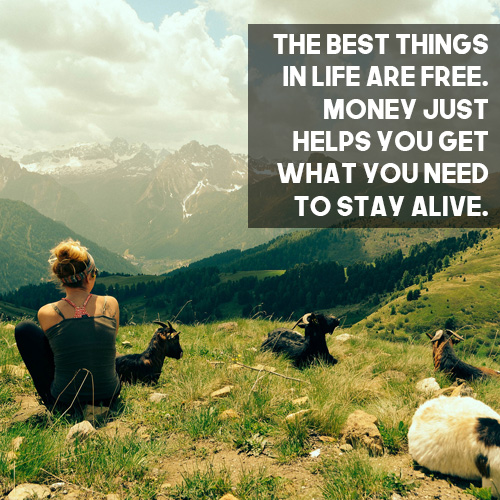 Although I have learnt that it is possible to travel the world entirely without money, I choose not to do this. I have travelled on extremely small budgets (such as when I travelled across Europe on €2.36 a day whilst eating pizza and drinking beer), but I never go for the ‘zero trip’. There are several reasons for this:
Although I have learnt that it is possible to travel the world entirely without money, I choose not to do this. I have travelled on extremely small budgets (such as when I travelled across Europe on €2.36 a day whilst eating pizza and drinking beer), but I never go for the ‘zero trip’. There are several reasons for this:
- My Health: Purely for the risk of personal accidents or sickness, I would never travel without travel insurance. Sometimes things go wrong and when that happens, you need a safety net otherwise you might be paying the hospital bills back for years (or worse). Read more advice about travel insurance.
- Vaccinations: I do not always get every vaccination that is recommended by doctors, but I do research and consider each vaccination recommendation, and get those that I think are necessary. I sometimes avoid this cost by going to the many countries that I do not need vaccinations for, or for which my existing vaccinations already cover me.
- Visas: I have never entered a country illegally and would not risk the consequences, so I always pay for visas. However, as a British passport holder there is a huge number of countries that I can enter without having to pay for a visa.
- Enjoyment and Luxuries: You do not need vast sums of money to enjoy life, but I find having the option to buy food when I need it (even if it is just a loaf of bread or a packet of instant noodles) gives me peace of mind on my travels, as well as the feeling of freedom as I can exercise control over my situation. Sometimes it is nice to buy a beer from a supermarket and sit on the beach watching the sun go down, and this luxury of choice is something that I enjoy.
INCREASING / MAINTAINING YOUR FINANCIAL INPUTS
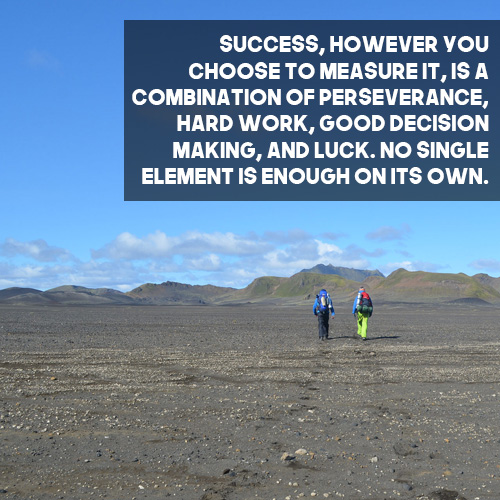 What I’m going to assume, is that you no longer wish to continue the job that you currently have (if you have one) and you are looking for a viable option to fund a new lifestyle choice, thus I will address new methods of income. I’m not going to address the issue of starting with a big sum of money; either you have it or you don’t. Most people don’t start any big trip or lifestyle change with a large sum of money, and I have never had a big sum of money to know what it feels like or what I would do with it. Most probably I would squander a significant percentage of it very quickly.
What I’m going to assume, is that you no longer wish to continue the job that you currently have (if you have one) and you are looking for a viable option to fund a new lifestyle choice, thus I will address new methods of income. I’m not going to address the issue of starting with a big sum of money; either you have it or you don’t. Most people don’t start any big trip or lifestyle change with a large sum of money, and I have never had a big sum of money to know what it feels like or what I would do with it. Most probably I would squander a significant percentage of it very quickly.
If you are undertaking a significantly new lifestyle and need more time to focus on your new lifestyle, or you are looking to travel on an extended basis, the following options are possible ways to maintain an income stream whilst leaving you free to follow your passion or move about the world. This income stream might not need to be as great as your previous income if you implement some of the aforementioned ways of reducing your expenditure. I often find that my life on the road is significantly cheaper than a static life, thus I can afford to earn only a small amount of money whilst I am moving constantly. This is because I choose to undertake low cost adventures and methods of travel, but you can adjust your expenditure according to your income. Here are some ways you might maintain an income with a significant lifestyle change or whilst travelling:
- Work for Yourself: Could you be motivated enough to work for yourself by utilising a skill that you have? This is a wide ranging topic and stretches all the way from continuing on your current career path (but working for yourself) right through to busking on the street or selling clothing that you knit as you travel. I have utilised my somewhat average knowledge of computers and travel to build websites, write paid articles, and build websites that generate income.
- Be An Expert and Become a Digital Nomad: Knowledge is power and if you are particularly knowledgable about a certain topic (or research it well), you can create a website or social media profile (ideally both), and once you build a following, leverage it to make money. If you produce content that you are genuinely passionate about and monetise only with products that you actually believe in, this can be a very rewarding career change. For many people this often leads to self-publishing and writing books which is a fun, albeit challenging endeavour, but rarely leads to large financial gain. Read more on self-publishing and how to make a website.
- Seasonal Work: Tourism is a booming industry around the world and there is always a demand for seasonal workers across the tourism and hospitality industries for every seasons. Seasonal jobs cover everything from working a ski season or being a counsellor at a children’s camp, to babysitting or teaching water sports. Every job that is available in a tourist area is a possibility because staff regularly come and go through the seasons, meaning new workers are always needed. Hospitality also has a notably high turnover rate meaning that if you can gain some experience in a kitchen or front of house role, it should be quite easy to find work in this industry.
- Utilise Working Holiday Visas: Working holiday visas are available in various countries to certain passport holders and offer you an unrestricted working visa for a set period of time. This is extremely useful if you are entitled to one.
- Work Remotely: Do you need to go somewhere every day to perform your current job or could you do it remotely (which might involve changing companies)? If you can do it remotely, you could move somewhere that suits your desired lifestyle, live in a place with a lower cost of living, and be flexible to set your own working day.
- Teach English Overseas: The industry for learning English is currently booming all over the world. This is wonderful for English speakers as it presents a viable way of earning money whilst living in new parts of the world, allowing you to integrate yourself with local culture. Once you start on this path and gain some experience, it become increasingly easy to find work teaching English in other parts of the world. Read more about teaching English overseas and how you can get qualified.
These are a few ideas to get you going, but as I have mentioned (repeatedly), the key here is to balance your outgoings with your incomings – learn to survive with what you have and if you can do this, you offer yourself the opportunity to live life in the way you want to live it.
EXPECTATION: THE WAY YOU ARE SUPPOSED TO LIVE YOUR LIFE
“Choose Life. Choose a job. Choose a career. Choose a family. Choose a f***ing big television, choose washing machines, cars, compact disc players and electrical tin openers. Choose good health, low cholesterol, and dental insurance. Choose fixed interest mortgage repayments. Choose a starter home. Choose your friends. Choose leisurewear and matching luggage. Choose a three-piece suit on hire purchase in a range of f***ing fabrics. Choose DIY and wondering who the f*** you are on Sunday morning. Choose sitting on that couch watching mind-numbing, spirit-crushing game shows, stuffing f***ing junk food into your mouth. Choose rotting away at the end of it all, pissing your last in a miserable home, nothing more than an embarrassment to the selfish, f***ed up brats you spawned to replace yourselves. Choose your future. Choose life… But why would I want to do a thing like that? I chose not to choose life. I chose somethin’ else. And the reasons? There are no reasons. Who needs reasons when you’ve got heroin?”
 That is the opening line from Trainspotting. I love it, all except the reference to heroin, but if we were to replace heroin with any other life choice that meant more to us as individuals than the life we are expected to live, it’s a brilliant passage. It encapsulates the frustration so many of us face when we consider the typical path through life.
That is the opening line from Trainspotting. I love it, all except the reference to heroin, but if we were to replace heroin with any other life choice that meant more to us as individuals than the life we are expected to live, it’s a brilliant passage. It encapsulates the frustration so many of us face when we consider the typical path through life.
Whenever we choose to break free from this path we will be met with concern as society has certain expectations about how we should and should not live our lives. The problem with this is that no one ever changed the world by doing the same as everyone else. And when someone following their own path does something amazing, everyone commends and praises them, forgetting all the warnings they had previously issued. People are fickle like that. Unless you change the world, choosing an unconventional life path will ensure that you are met with scrutiny and disdain. There will be people who look down on you and there will be the people who love you, who have expectations of you because they are afraid of what may happen if you take too many risks.
You can never convince everyone that unconventional choices are correct – such is the nature of human beings. So if you can please only one person, make that person yourself. Do what you believe is the right thing to do and follow your heart so that if things go wrong, you only have yourself to blame. And when they go wrong, pick yourself up and start again. There will be people who say, ‘I told you so’, but you must learn to listen to your own voice above all others.
I’d like to tell you a story about a man named Steve Jobs. He was a founding member of a company named Apple, but was forced out of his own company thirteen years after he started it. Rather than lamenting his bad fortune (which I’m sure he also did), he founded a company called NeXT and funded another that later became known as Pixar. Twelve years after being forced out of Apple, NeXT was sold to Apple for $427 million in a deal that eventually saw Steve Jobs become CEO of Apple as it became the most valuable company in the world. Twenty one years after his initial parting from Apple, Pixar was sold for $7.4 billion. Steve Jobs did not do things in a conventional way (his highest form of completed education was high school) and many people doubted him, but without the perseverance to keep fighting in the face of adversity and expectation, we would live in a very different world to the world that we live in today (for better or worse). There will only ever be one Steve Jobs, but you can aim to be the best person that you can be, by doing things your way.
When I first started living the life that I live, I started Great Big Scary World to share stories with my family: It was my way of conveying why I was doing what I was doing. They didn’t understand at first, but it has certainly helped and many of them ‘get it’ now. Others don’t. Whilst on the road there have been many times when I have been happily (and voluntarily) ‘unemployed and homeless’, but people don’t seem to ‘get that’ either. Sometimes I now make a job title up to avoid difficult conversations. Such is life.
EXPERIENCE: NOT HAVING THE SKILLS TO DO WHAT YOU WANT
It seems there is this horrible, catch twenty-two cycle, that to do anything in this world we need to have experience… but how do we get experience if no-one will let us try in the first place? Only if we start young, and learn to do something when it is acceptable to have no experience or skills, is it possible to truly become involved in something. I am a big advocate of ‘accessible adventure’, promoting the idea that anyone can get involved in any form of adventure with a combination of intelligent thinking and determination.
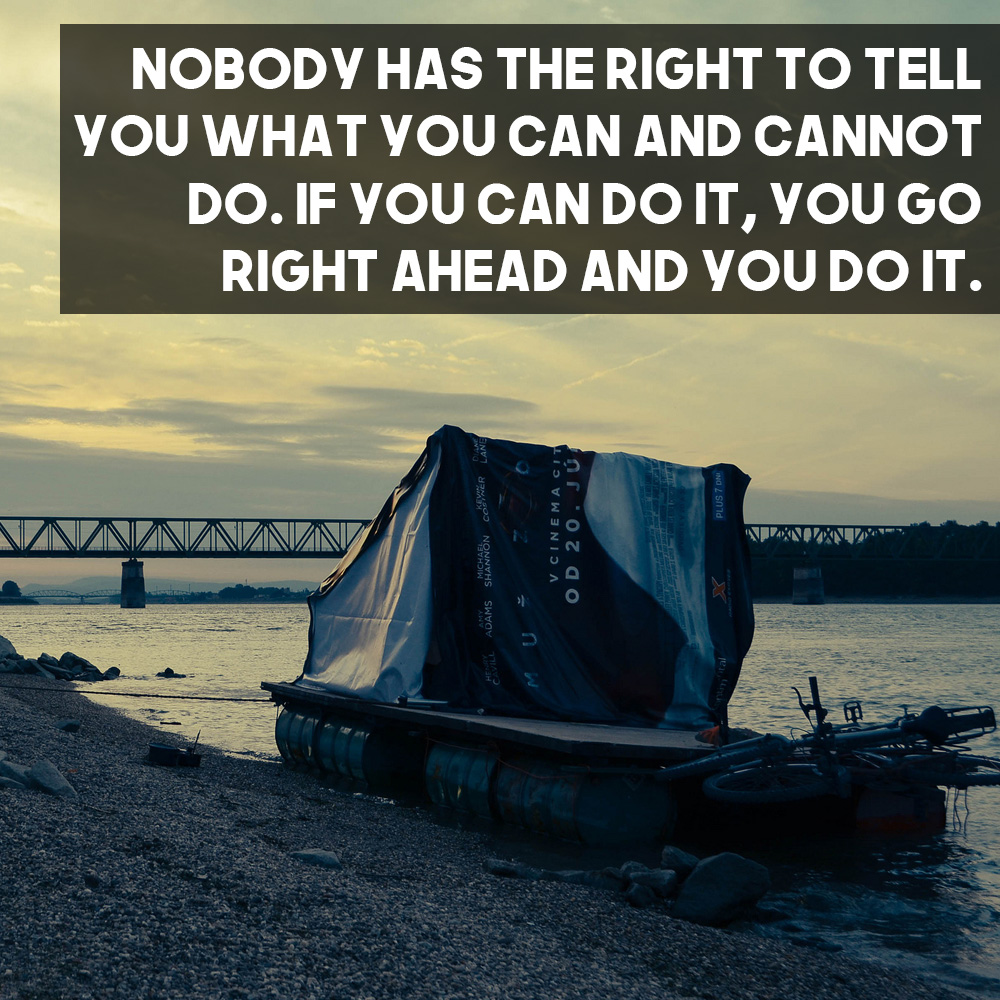 Let’s think about starting new things in our lives where experience is notoriously desirable: Jobs and sports, two examples where we might like to try something completely new. I’m going to focus on difficulties here, then address how I get around them.
Let’s think about starting new things in our lives where experience is notoriously desirable: Jobs and sports, two examples where we might like to try something completely new. I’m going to focus on difficulties here, then address how I get around them.
- Jobs and Careers: If you want to go into a new field of work and get a job where you have no experience, you are going to find it very difficult to find employment – understandably so because employers don’t want to waste money. Most probably you will have to go through some form of unpaid or low paid internship, but even that might require you to first undergo education which you have to pay for. This system funnels people into careers and pigeonholes us into certain fields for life because most people cannot afford to break the earning cycle and take the time to learn their new interest.
- Sports: I love to play sport and there are lots of sports I don’t play that I would love to become involved in, but how do you start playing a sport when you are an adult and everybody already knows how to play? People don’t want an amateur on their team, messing things up.
How do we get around these issues? I find that the best thing to do is to be autodidactic and to learn as much as you can by yourself, and when you try something for the first time, try hard – really, really hard so that you get better at it as quickly as possible. Our learning of any skill is always steepest at the beginning, meaning you can acquire great competency in anything in a short period of time, compared to the time it takes to fine tune excellency.
Here is a list of jobs I have worked over the past few years that I have been ‘unqualified’ for and how I got them:
- Ski Rep: A major job requirement of being a ski rep is to be able to ski, which I couldn’t, but I persuaded the interviewer that I would learn really quickly. I play a lot of sport and I did practice really hard, and everything worked out well – I was taking guests out on the mountain for tours after only three days of practice (I did ski for a week, eight years before, so I wasn’t an absolute beginner). Alternatively I could have actually learnt to ski before applying for the job.
- Chef: My title was kitchen hand, but I was the only person in the kitchen, cooking and serving $20 meals in a chef role on many occasions. I applied for a role as a kitchen hand and when a series of chefs were fired, stepped up to take over the kitchen, giving me experience that I was then able to use to get new jobs and my position.
- Web Designer and Digital Marketer: From making my own website I learnt a fair bit about making websites and how to grow them. I have no qualifications for this, but then offered these skills to others and found people who were interested. Making a website is actually super easy and a great way to share things you care about, so don’t be afraid to have a go.
- Writer: I studied mathematics, but always wrote for enjoyment. I don’t write well, but I write simply and honestly, and sharing my own writing has led to writing opportunities for many other websites. I then transformed some of my writings into books and self-published them. If you have something to share with the world you are now able to do so through your own website or self-publishing.
- English Teacher: I took a role as a classroom assistant for a couple of weeks in the UK, then did a couple of days volunteer teaching in Uganda when the opportunity presented itself, and used these two experiences as leverage to get full time jobs teaching English in South Korea and Turkey.
As far as sports go, it is always possible to find a friend to practice with and find a lower level club or casual group of players – you just have to have to accept that you will be a bit rubbish at the start (which isn’t fun), and try, try, TRY as hard as you can to improve. I remember the first season I played football – I didn’t get picked for the games once and I was so embarrassed. The second season I was mostly a substitute, but by the fourth season I won the ‘Player of the Season’ award.
UNDERTAKING ADVENTURES WITH ‘INSUFFICIENT EXPERIENCE’
Certain forms of adventure can be very elitist. If I was to apply to any form of organised expedition, I would (most probably) get a resounding NO. As such, I have decided over the last few years that I would simply do things by myself. Screw the people who say you can’t do something because you haven’t done it before. There is a lot to be said for simply ‘having a go’ and it truly is amazing how much you can learn through a combination of research, and trial by fire (learning as you go). Here are a few things I have done, that I was told would not be possible due to my lack of experience, and that any able bodied individual with a bit of common sense would be able to do:
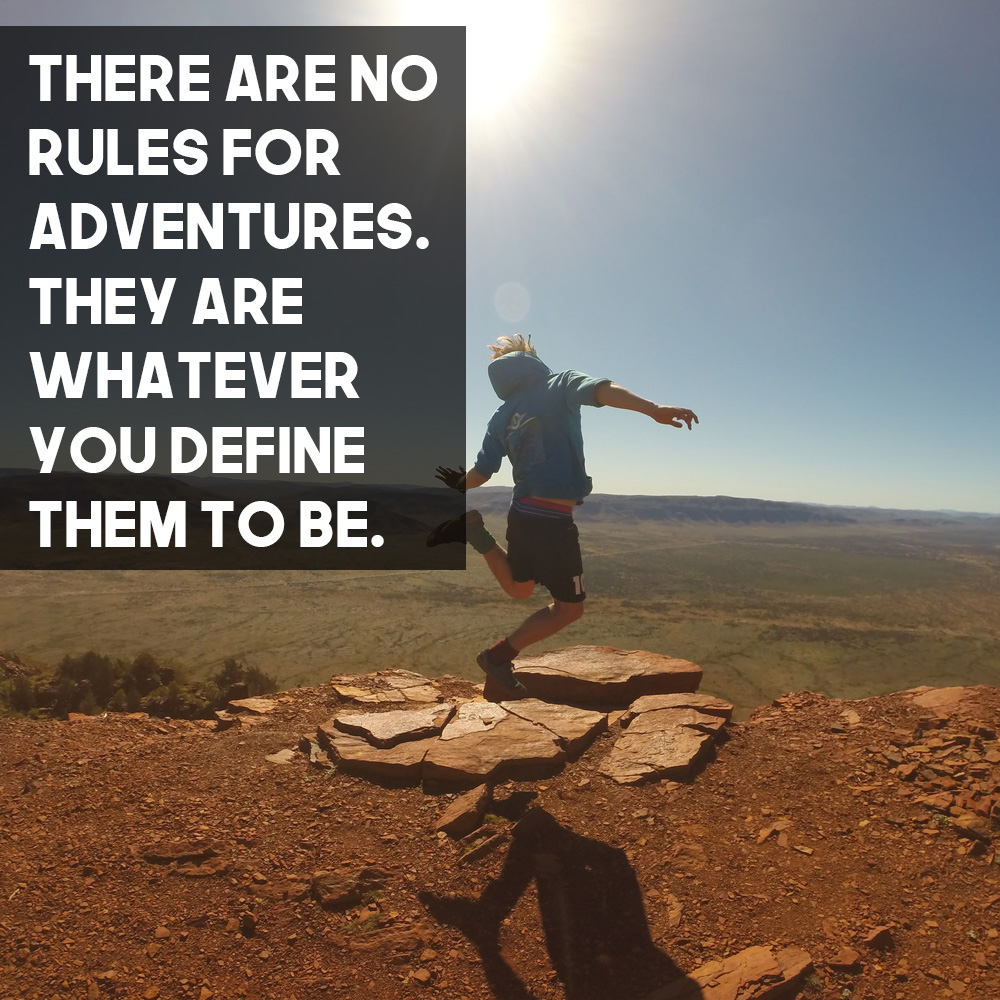 Walked Across Iceland, Unsupported (With My Brother): I had never walked more than 10 miles at a time in my life when I started this journey – and that was without a 30kg backpack. My brother and I (and two friends, initially) headed to Iceland after doing some online research and spent two weeks traversing 400km on foot whilst carrying extremely heavy packs. It snowed twice during our hike, a volcano erupted, and we didn’t see anyone for days at a time, but all in all we had a pretty amazing time. Aside from the research and preparation (which was insufficient), the thing that got us through this journey was the mental resolve to keep taking step after step. If you just focus on one step at a time, and not the whole journey, you will eventually find you have walked all the way across Iceland.
Walked Across Iceland, Unsupported (With My Brother): I had never walked more than 10 miles at a time in my life when I started this journey – and that was without a 30kg backpack. My brother and I (and two friends, initially) headed to Iceland after doing some online research and spent two weeks traversing 400km on foot whilst carrying extremely heavy packs. It snowed twice during our hike, a volcano erupted, and we didn’t see anyone for days at a time, but all in all we had a pretty amazing time. Aside from the research and preparation (which was insufficient), the thing that got us through this journey was the mental resolve to keep taking step after step. If you just focus on one step at a time, and not the whole journey, you will eventually find you have walked all the way across Iceland.- Cycled 1,000 Miles On a £30 Bicycle: When I said to a keen cyclist that I wanted to cycle across a few countries, they told me which expensive bike I must buy, which cycling club I should join to train, and suggested a strict training regime that I should follow. Instead of doing this I bought a £30 bicycle (because it was what I could afford) and strapped some cool boxes to the back, then started pedalling. I had never even repaired a puncture when I started this journey, but I learnt to fix everything on a bike and by taking the journey one pedal rotation at a time, we were able to comfortably complete our journey and love the experience. We even had a short movie made about the journey that was shown on UK TV.
- Rafted Down The Danube On A Homemade Pirate Ship: When we asked the river authorities in Slovakia about this, we were told that it would be suicide. When we told other people our plans, they thought we were going to die. Instead, we simply set about building our raft from recycled materials, then put it on the water and headed off. It wasn’t dramatic, it wasn’t scary, and we were never in (great) danger. The problem with many adventures is that many people imagine great drama when they think them up, but the reality is very different. We even had a short movie made about this journey that was shown on UK TV.
- Converted An Old Van To A Camper Van: The Donkey was its name and it was a beaten up, work vehicle that my dad’s company had been using to transport materials for the best part of a decade. We gave it a lot of TLC, researched how to convert a van on the internet, and spent one month converting the van to a home on wheels. I grew up playing with tools I used to take from my dad’s workshop, but nobody ever showed me how to use them, so I figured a lot of this out as I went along. Despite not having much experience, I was pretty happy with the end result.
- Hitchhiked Through Europe For Six Months: You don’t need experience to hitchhike, but living in a tent and on the sofas of strangers for an extended period of time is something that I was heavily advised not to do by innumerable people. The reality was very different – I stuck out my thumb and had one of the richest learning experiences of my life, and everything was (much more than) OK.
I mention all of these experiences only to promote the idea that anything is possible if you want it enough. Screw the people who tell you that you can’t do something, that you don’t have enough money, that you are unskilled – just go out there and find a way to make it happen. It won’t be easy, you’ll have to work very hard, and you will fail many, many times… but that is all part of the adventure. Or just sit at home and watch another episode of a show you don’t care about – it’s up to you.
PASSPORTS AND VISAS: LIVING IN A WORLD WITH BORDERS
 I am a big fan of the no borders movement and I am anti nationalism: No Borders promotes the freedom of movement and an end to migration controls. If introduced, what this would cause would be mass movement of people on a global scale as individuals tried to get from less favourable to more favourable places. It would screw a lot of countries up, but one day it would balance out. Why do I support this? I support this because I am a human being on a planet full of human beings and I resent the fact that we are separated by invisible borders. No matter anybody’s race, religion, beliefs, background, wealth, or anything else that you can use to divide humans, we are all one and the same – where we are born is no achievement. The fact that pieces of paper define where we can live and who we can love is madness – what would you think of the aliens if they did such things?
I am a big fan of the no borders movement and I am anti nationalism: No Borders promotes the freedom of movement and an end to migration controls. If introduced, what this would cause would be mass movement of people on a global scale as individuals tried to get from less favourable to more favourable places. It would screw a lot of countries up, but one day it would balance out. Why do I support this? I support this because I am a human being on a planet full of human beings and I resent the fact that we are separated by invisible borders. No matter anybody’s race, religion, beliefs, background, wealth, or anything else that you can use to divide humans, we are all one and the same – where we are born is no achievement. The fact that pieces of paper define where we can live and who we can love is madness – what would you think of the aliens if they did such things?
Despite not believing in this system, I have learnt to work with it. Search ‘Visa requirements for XXXX citizens’ (replacing XXXX with the nationality on your passport) on Wikipedia to find where you can travel freely. Despite having been to tens of countries across five continents, with the exception of work visas, study visas, and ESTAs, I have never been to a country where I have had to apply for a visa in advance. This is partly because I have a British passport which makes my life quite easy when travelling and partly because I avoid the difficulty and expense of applying for visas I might not get. I did nothing to deserve my British passport (being born doesn’t count), hence why I support the No Borders movement.
FRIENDS AND FAMILY: RESPONSIBILITIES AND DISTANCE
 I have spent many years living outside of England, away from my family. I hate this part of my transient life and I find it very difficult to deal with, but I think it is very important to not use the excuse of family or friends as something that holds you back because it can lead to resentment. These resentments may be silent frustrations that are never voiced, but somewhere deep inside, they can eat people up. This is true of children, siblings, parents, friends, or anyone else that you care about. [How could you blame your child for inhibiting your dreams by committing no crime other than existing?] My way of staying connected with the people I care about is by sharing stories with them (such as I do on this site) and speaking with or visiting them whenever I can. And trying to let them know how much I care – it is difficult to speak openly and honestly about you feel, but we must do the best that we can. With the real people that matter, time apart and distance are no obstacles, you just pick up where you left off when you have the chance to be together. But you miss them when you’re not.
I have spent many years living outside of England, away from my family. I hate this part of my transient life and I find it very difficult to deal with, but I think it is very important to not use the excuse of family or friends as something that holds you back because it can lead to resentment. These resentments may be silent frustrations that are never voiced, but somewhere deep inside, they can eat people up. This is true of children, siblings, parents, friends, or anyone else that you care about. [How could you blame your child for inhibiting your dreams by committing no crime other than existing?] My way of staying connected with the people I care about is by sharing stories with them (such as I do on this site) and speaking with or visiting them whenever I can. And trying to let them know how much I care – it is difficult to speak openly and honestly about you feel, but we must do the best that we can. With the real people that matter, time apart and distance are no obstacles, you just pick up where you left off when you have the chance to be together. But you miss them when you’re not.
LONELINESS: THE FEAR OF BEING ALONE
When we live in a place and we know everybody, there is this fear that going somewhere new leads to loneliness. I remember the first night in Korea when I was sitting in my spacious apartment, completely alone, not knowing anybody, wondering what the hell I was doing there. And I remember the first night I started hitchhiking by myself and slept in the garden of an abandoned building somewhere on the outskirts of Brussels – I rocked myself to sleep with my arms wrapped tightly around my knees. I was alone at the start, but made lifelong friends along the way. I value all of my existing friends and family, and always will, but I am also aware that on no journey are we ever alone. If you go somewhere with an open mind and half a smile, you will find people who will become part of your life journey. The excitement of the new people I might meet now overcomes all fears of loneliness, but will never compensate for the many great people I don’t get to see as often as I would like, if at all.
SECURITY: NOT WANTING TO ABANDON SOCIETY
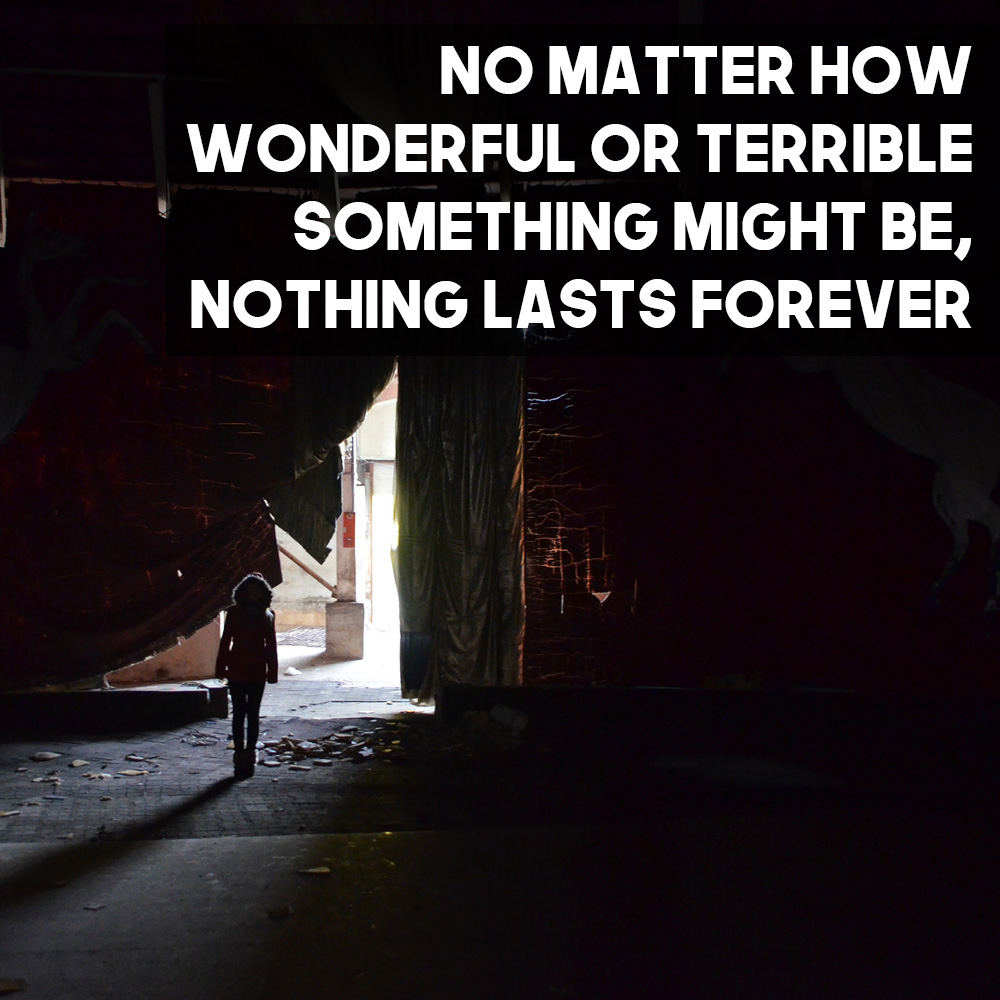 We, as a species, like to hold onto what we have. It’s an evolutionary development that when we achieve a level of comfort and security, we want to maintain it – and that makes sense. However, there are many parts of the world where comfort and security are no longer an issue: Equally there are many parts of the world where comfort and security are still very much an issue. I’m going to talk about my situation, only because I cannot comment on anyone else’s situation (we only know our own lives). I come from the UK where we have an NHS that looks after everybody and a welfare system that offers social security to those in need – I won’t address the flaws in either system as nothing is perfect, but all in all, they are both pretty good systems that look after people much better than in many parts of the world. I have never heavily utilised either system (with the exception of occasional visits to the doctor and such like), but I have always been aware that they are there which offers me security and comfort. And you know what? What I have found is that comfort and security are not enough. Once we get comfortable, we need something more, something to live for. Someone once said to me, ‘People need more than food and water’, which maybe I didn’t understand at the time, but I get it now (a little bit). Being alive is not enough to feel alive: You need to constantly remind yourself that you are alive by doing things that excite you. But with that desire comes risk – what if we lose our comfort and security?
We, as a species, like to hold onto what we have. It’s an evolutionary development that when we achieve a level of comfort and security, we want to maintain it – and that makes sense. However, there are many parts of the world where comfort and security are no longer an issue: Equally there are many parts of the world where comfort and security are still very much an issue. I’m going to talk about my situation, only because I cannot comment on anyone else’s situation (we only know our own lives). I come from the UK where we have an NHS that looks after everybody and a welfare system that offers social security to those in need – I won’t address the flaws in either system as nothing is perfect, but all in all, they are both pretty good systems that look after people much better than in many parts of the world. I have never heavily utilised either system (with the exception of occasional visits to the doctor and such like), but I have always been aware that they are there which offers me security and comfort. And you know what? What I have found is that comfort and security are not enough. Once we get comfortable, we need something more, something to live for. Someone once said to me, ‘People need more than food and water’, which maybe I didn’t understand at the time, but I get it now (a little bit). Being alive is not enough to feel alive: You need to constantly remind yourself that you are alive by doing things that excite you. But with that desire comes risk – what if we lose our comfort and security?
I never had this issue because I am from the UK and my family are wonderfully welcoming (for which I am eternally grateful). And if I ever got bored of my journeys, I wasn’t condemned to wander the Earth for life. I could go back to what I had before, find that comfort and security that I had, and I think that is the key: Nothing lasts forever. No decision that you make now (unless you do something bad to someone else) will be with you forever, and you are free to change your life in the future as much as you so wish.
JOBS: HAVING A GREAT JOB YOU DON’T WANT TO LEAVE
I have had jobs I liked and jobs I loathed, but I saw all of them as temporary (as is life). If you find something that you love, something that makes you excited to get out of bed in the morning, that is pretty awesome. Work is not the enemy. If you aren’t sure that you feel positively about the job that you have, you should do the ‘Do You Like Your Life’ quiz. I do it regularly to reassess where I am in life and I find it very helpful. And if you don’t like your job, you should quit your job to live your life.
TIME: PUTTING THINGS OFF UNTIL LATER
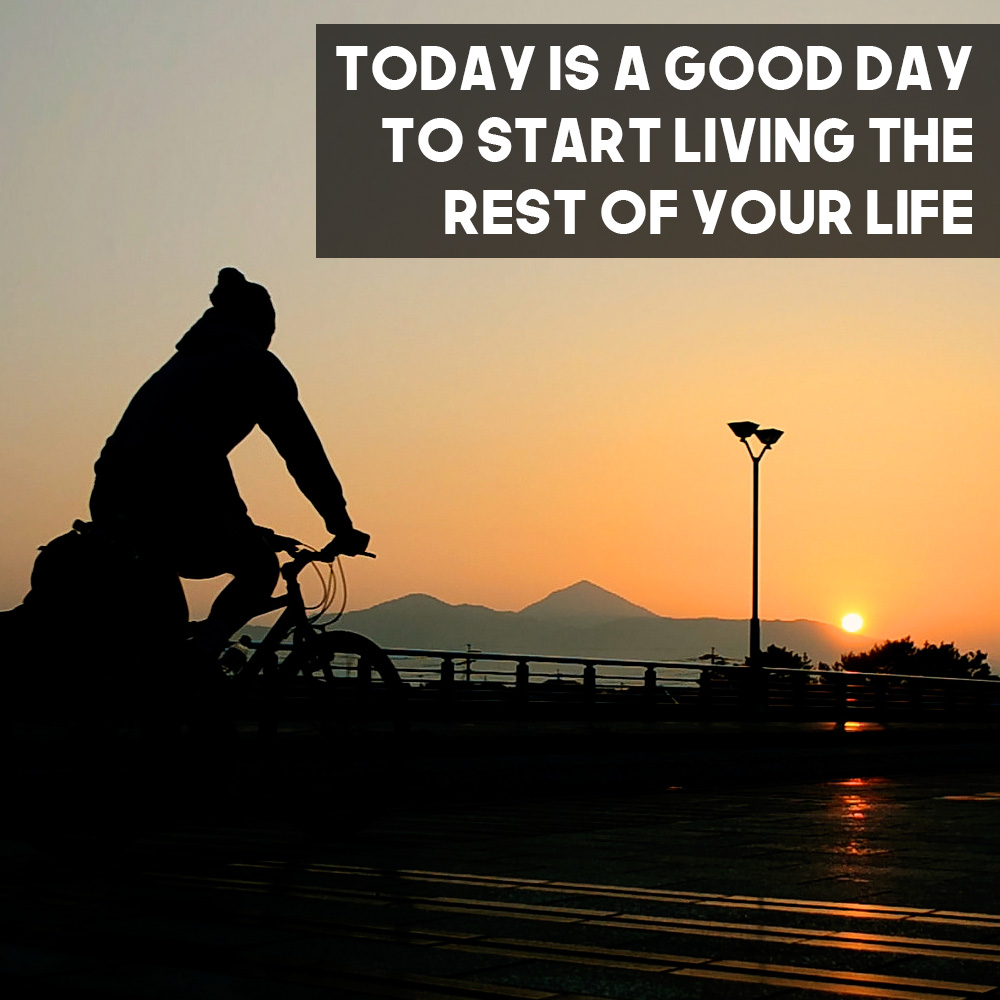 If there are things that you want to do in life, but you are putting them off until later, I have one question for you: What the hell are you waiting for? If you have a definite and reasonable answer, great. If you don’t, find one, or get on with what you want to do now. We have a finite time on this Earth and nothing, NOTHING, will ever be perfect. Every single thing I have done in my life could have been put off indefinitely so that I never did anything at all, but sometimes you have to grab life by the scruff of the neck and get on with whatever it is that you want to do – you’ll figure out how to do it along the way.
If there are things that you want to do in life, but you are putting them off until later, I have one question for you: What the hell are you waiting for? If you have a definite and reasonable answer, great. If you don’t, find one, or get on with what you want to do now. We have a finite time on this Earth and nothing, NOTHING, will ever be perfect. Every single thing I have done in my life could have been put off indefinitely so that I never did anything at all, but sometimes you have to grab life by the scruff of the neck and get on with whatever it is that you want to do – you’ll figure out how to do it along the way.
POSSESSIONS: OWNING THINGS
Whenever I have lived in a place, I find myself accumulating things – and these things are possessions once I possess them. In short periods of time I accumulate lots of these possession, lots of things, many of which I don’t need. I keep boxes of receipts and I keep birthday cards, and I keep t-shirts that I haven’t worn for five years because they remind me of times gone by. I worry about these things, and I worry about them getting damaged or losing them. And then I get to a point where I am going somewhere new and all I have is a backpack. I pack what I need and I take off, and I forget about all the things that I had and it is one of the most freeing feelings in the world. I don’t need things – I don’t need the stress of having things in my life. There are things that I do like having and I go through periods of having less and having more, but I came into this world with my bare naked body and I will take nothing out. Try giving it all up (even if you put it in storage) and see how freeing it can be to not have to worry about possessions anymore.
OTHER FORMS OF ADVERSITY
There are many other forms of adversity in this world – problems and obstacles that we must overcome. Some of them are physical, many of them are mental, but they affect us all to varying degrees, and anything that limits us or that is a problem to us as individuals is a real problem that must be dealt with. Don’t let others belittle your issues.
I have shared some obstacles that I am familiar with, but with any obstacle in life I think that it is important to assess your priorities. Ask yourself whether the obstacle itself, or what is beyond the obstacle, is most important. Then try to act accordingly. This page will grow over time, incorporating more forms of adversity, as will the subpages, linking to more extensive content on each issue mentioned. I hope we can create an open dialogue about how to deal with many of these issues.
WHAT NEXT?
There is so much possibility in this world. On this site I am going to share some of the possibilities that I have encountered and offer advice based on my experiences so that others can do the same. I am currently building many of these pages and will add links here once they are done, but here are a few pages that you might find useful for the time being:
Quit Your Job To Live Your Life
Travel Without Money: Yes, It’s Possible
Teach English Overseas: A Way To Afford Travelling The World
Take The ‘Do You Like Your Life’ Quiz
Travel Insurance: The One Thing I Buy Before I Do Anything Overseas

